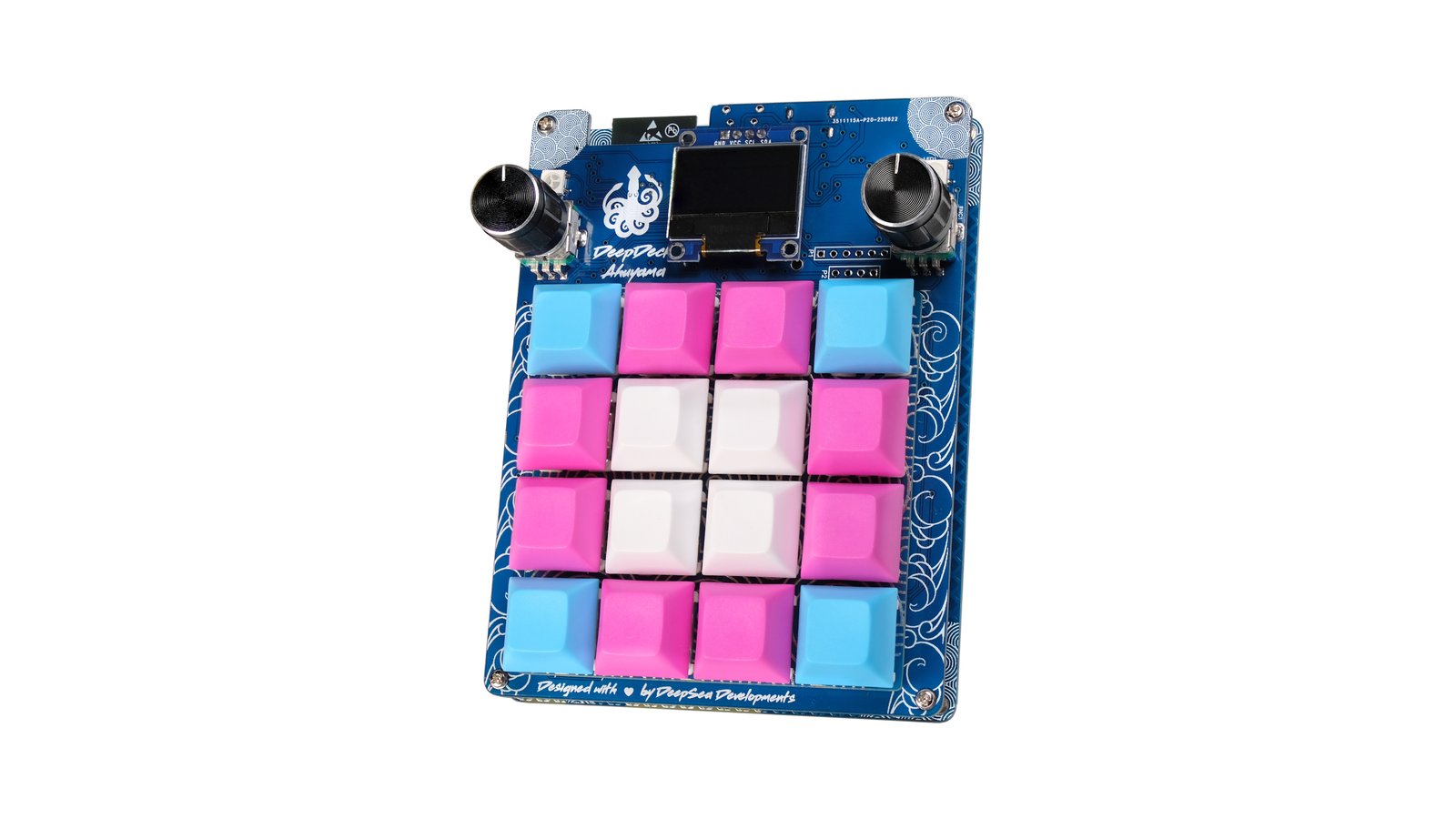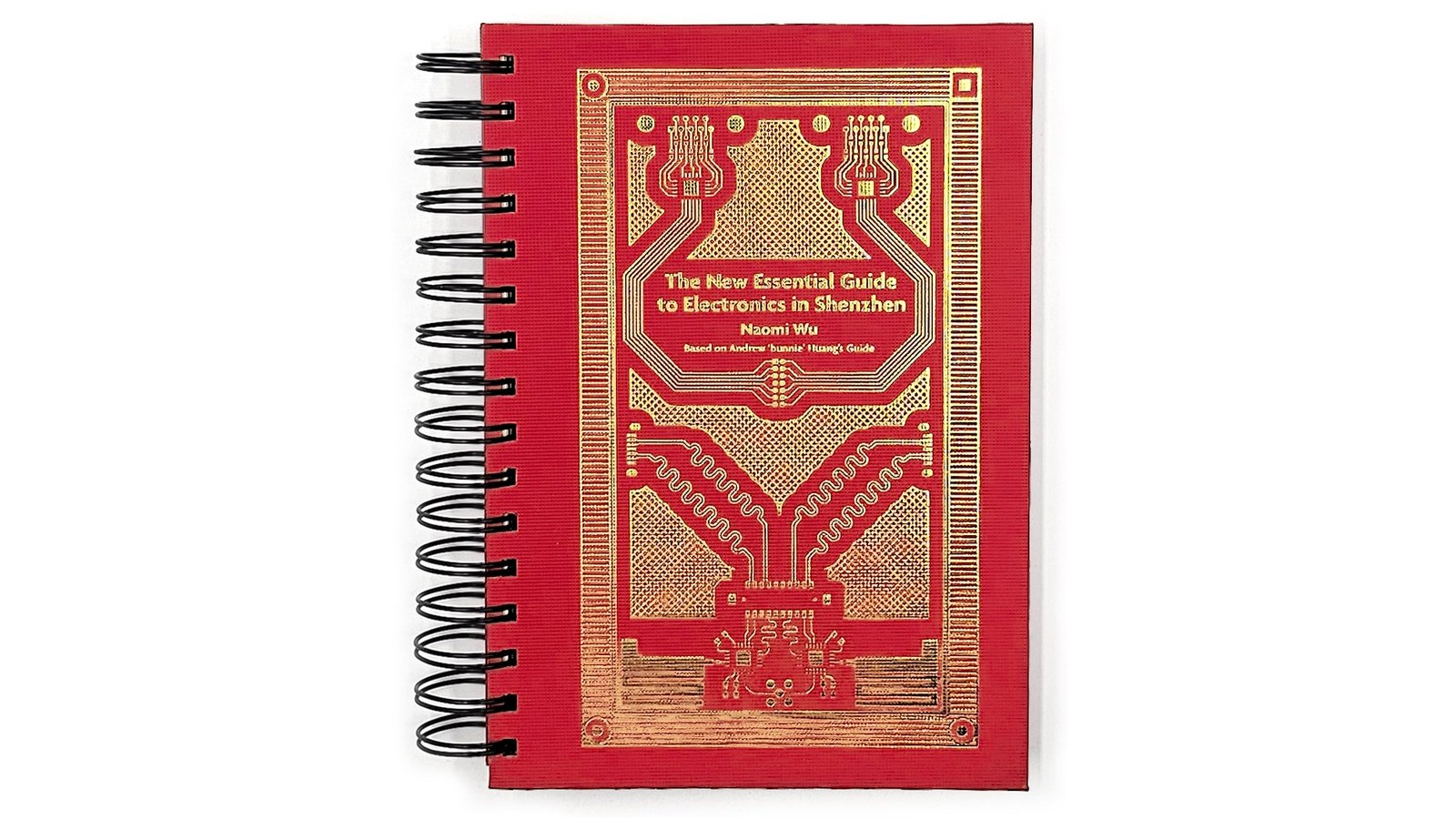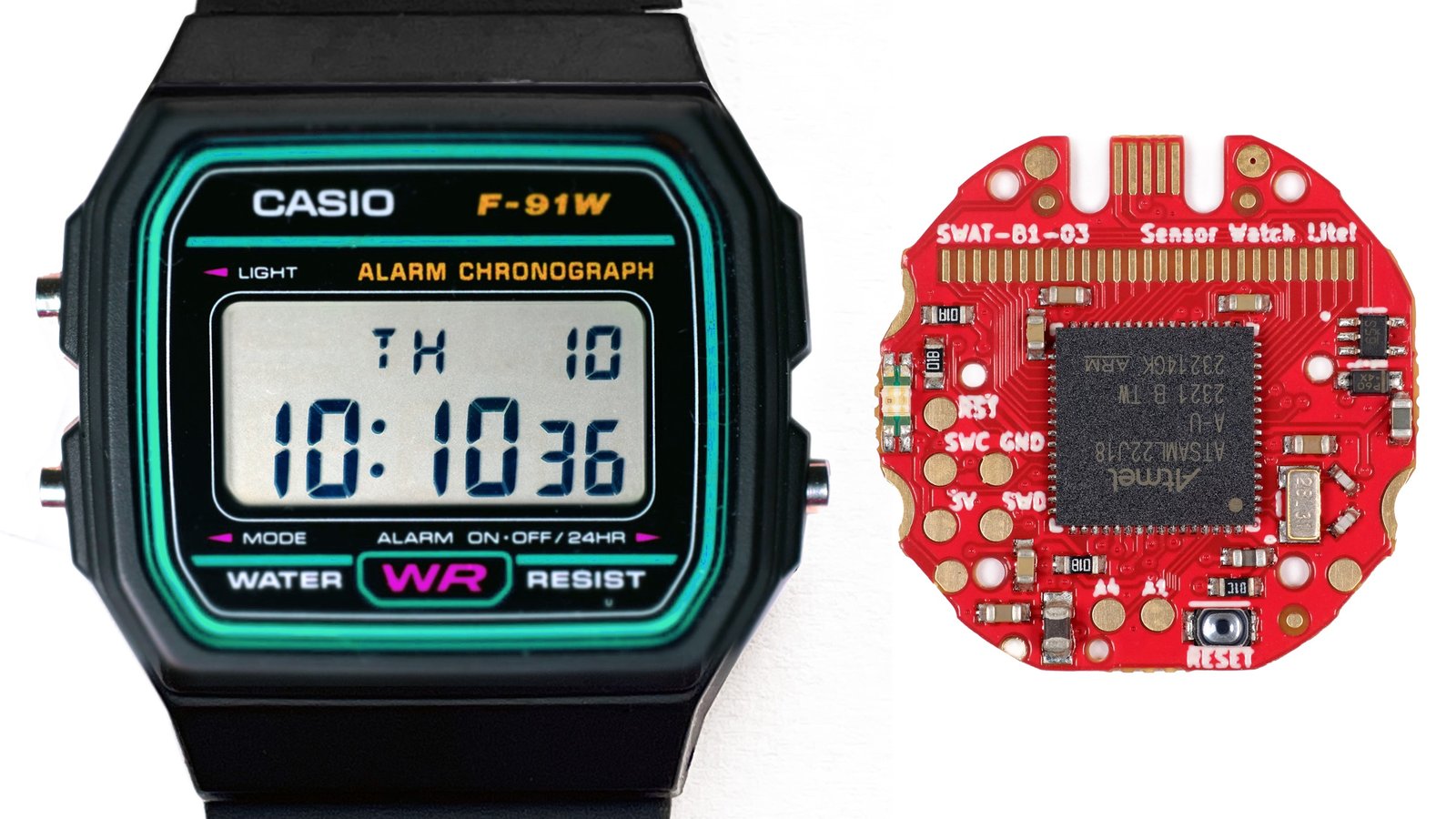ProtoCentral Electronics Private Limited
Bluetooth
Zephyr
HealthyPi Move
An open-source biometric monitor in a watch form factor
Funding ended on Jul 11, 2024 at 04:59 PM PDT.
ProtoCentral Electronics Private Limited
Bluetooth
Zephyr
Funding ended on Jul 11, 2024 at 04:59 PM PDT.
HealthyPi Move is an open-source biometric monitor in a watch form factor. It supports continuous or intermittent monitoring of vital biometric signals like ECG, heart rate, HRV, PPG, SpO₂, blood-pressure trends, and respiration. HealthyPi Move is designed as a platform for innovation and customization, enabling users to integrate health tracking into their projects and personal wellness routines. The HealthyPi Move comes ready for everyday use and advanced research applications, in one device.
We designed HealthyPi Move according to the same principles as our larger HealthyPi products: open hardware, open-source software, clinical-grade precision, ease-of-use, and standalone operation without dependence on cloud services or paid subscriptions. The Move can be used for a wide range of applications, including personal health tracking, the development of healthcare-related devices, and even clinical research – with institutional review board (IRB) approval. If you have the resources to Shepherd your device through the FDA (or equivalent) certification and clearance process, you can use it for medical patient monitoring as well, and it already supports most of the capabilities you would need!
Data is the single most valued and traded item in the health industry lately, in part because of the need to train AI models for data-research studies. With the exception of a few open data-sharing platforms such as Physionet, most collected data is locked within proprietary systems where companies can sell it to the highest bidder. With HealthyPi Move, you own your health data. We don’t collect or sell your data, we don’t have a cloud service on which to store your data, and we don’t have a subscription model through which you and others can access your data. You can choose to share it with your health-care provider or with a research study on your own. Or, if you wish to train your own models or carry out your own research studies, you can use our open-source platform to gather data from participants, including yourself.
Truly owning any electronic device today is a challenge, as most devices are designed to be disposable, rather than repairable, with hidden screws, glued parts, and proprietary software. HealthyPi Move is designed to be maintainable and upgradable to protect your right to repair. Broke the display? Simply buy a replacement from our site (or a screen with the same specs from wherever) and replace it yourself. We designed the Move so you can open it up and fix it, which means it’s held together by screws and snaps rather than by glue like most devices. It’s also designed with modularity in mind, so the main board, sensor board, and battery are all easy to replace. Finally, HealthyPi Move is user programmable, so you can write your own algorithms and applications for it.
The HealthyPi Move is packed with sensors to monitor a wide range of biometric signals. Here are some of the key sensors onboard:
ECG uses the electrical activity of the heart to indicate heart health. HealthyPi Move contains a single-lead ECG with one set of electrodes on the back of the device, which touches the skin of one wrist, and another electrode on the top side of the the device which you can touch with the finger of your other hand, thus forming a Lead-II type ECG configuration.
The ECG data is processed by the onboard SoC and can be visualized in realtime on the display or sent to a smartphone or computer via Bluetooth (BLE). Heart-rate and HRV is also calculated from the ECG data in realtime. Respiration rate is also indirectly derived from the ECG using the EDR method.
Parameters derived from the ECG data include:
HealthyPi Move comes with two PPG sensors in different locations, which is a first for a wearable device in this form factor. The wrist-based PPG is located under the device and is used for everyday heart rate and SpO₂ monitoring. The finger-based PPG is optional and plugs into the device’s USB Type-C port. It can be used for more accurate SpO₂ monitoring, which is particularly useful under low-perfusion conditions and for blood-pressure trend monitoring. Below is a picture of the HealthyPi Move wrist and finger sensors. The finger sensor shown here is a prototype worn with a band, but the final version will be integrated into a small, flexible finger ring connected to the main board with a flexible cable.
HealthyPi Move work with either the wrist sensor or the finger sensor, and can even run both simultaneously. This dual location PPG configuration opens up a new range of interesting applications, starting from everyday fitness tracking to blood pressure trending and pulse transit time (PTT) measurement, all using the same device. HealthyPi Move has two MAX32664 sensor hubs, one for the wrist sensor and one for the finger sensor. They come with medical-grade PPG algorithm libraries that can be used to calculate HR, SpO₂, and BPT values in addition to outputting raw data. The wrist sensor has four LEDs—two green, one red, and one infrared—and two photodiodes for reliable PPG data acquisition. The finger sensor has a MAX30101 sensor module with red and infrared LEDs and a photodiode.
Blood-pressure trending (BPT) is calculated in realtime using PPG data acquired from the finger sensor. A tiny sensor board integrated into the finger ring features a MAX30101 integrated optical sensor module, and the HealthyPi Move sensor board has an onboard MAX32664D biometric sensor hub, which provides a PPG algorithm library that can be used to calculate SpO₂ and BPT values. Several studies have shown that BPT values calculated from PPG data are comparable to values obtained using traditional cuff-based blood pressure monitors.
Parameters derived from PPG data include:
EDA or GSR provide a measure of the electrical conductance of the skin, which varies with its moisture level. This is a good indicator of changes in mental state and can be used to monitor stress levels and emotional response. HealthyPi Move has two electrodes in the back that touch the skin of the wrist and measure the conductance of the skin, which correlates to EDA/GSR activity. GSR/EDA data can be recorded or visualized on the display.
Parameters derived from the EDA/GSR data include:
In addition to the above, HealthyPi Move has the following additional sensors onboard:
HealthyPi Move is powered by the Nordic nRF5340 dual-core SoC, which has a Cortex-M33 application processor and a Cortex-M33 network processor. The application processor runs the main application, and the network processor runs the BLE stack. The nRF5340 has 1 MB of on-chip flash and 512 KB of RAM, which is more than enough to run the HealthyPi Move application and user applications, with plenty of processing power to spare. The onboard 128 MB of flash is connected through a high speed QSPI interface and can be used to store up to 10 days of processed data, assuming a four-second sampling duration. The device can also be used to store raw data for shorter durations, making it perfect for stand-alone data collection without a smartphone or a computer.
Since the Zephyr software stack and the nRF Connect SDK both support the MCUBoot bootloader, HealthyPi Move can be updated with new software over the air (OTA) using the BLE interface from the HealthyPi mobile app or through the USB interface from a computer.
If you wish to program the nrf5340 directly with an nRF DK or any other J-Link programmer, you can do so by connecting the SWD pins to our programming adapter board which plugs into the USB Type-C port. The programming adapter board also has a UART interface that can be used to debug the application. The USB Type-C port is internally multiplexed to allow for SWD and UART access, charging, and data transfer. The multiplexing circuit on HealthyPi Move relies on the USB Sideband pins and Debug Accessory Mode (DAM) to achieve this functionality without hindering the normal operation of the USB Type-C port at full speed or fast charging with support for USB Power Delivery (PD).
The HealthyPi Move enclosure is designed to be simple, slim, accessible, and as light as possible while still being robust enough to hold the necessary sensors and electronics. The current version (shown in various pictures above) is an SLA 3D-printed version that we’ve been using for prototyping and testing. The final version of the enclosure will be injection molded and will be made of a biocompatible ABS-type material. The enclosure is designed so that the entire PCB and battery assembly can be inserted in one go from the back and secured with screws. The enclosure will include a strap-attachment mechanism that will accommodate any standard, 22 mm watch strap. Our enclosure has gone through numerous iterations (and is still undergoing changes) to ensure that it is comfortable to wear and easy to use. Several of those iterations are shown below:
We eventually plan to manufacture a premium, metal version of the enclosure that will be even more durable and stylish. This alloy enclosure will be made of a biocompatible material and will be sold as an accessory when it is available.
The finger ring sensor will be molded into a silicone-based material that will be flexible and comfortable to wear. It will connect to the main board using a flexible, detachable cable. Both enclosure designs are being developed in-house on Autodesk Fusion 360 and the source is available on our GitHub repo. Manufacturing of the enclosures will be carried out by trusted partners.
| Healthypi Move | Samsung watch 6 Classic | Apple Watch | ScanWatch Nova | Nonin WristOx2 Model 3150 | KardiaMoble 6L | |
|---|---|---|---|---|---|---|
| Manufacturer | ProtoCentral Electronics | Samsung Electronics | Apple Inc. | Withings | Nonin Medical | Alivecor |
| Wearable type | Wrist wearable with finger sensor | Wrist wearable | Wrist wearable | Wrist wearable | Wrist wearable with finger sensor | Handheld |
| Processing | Nordic Semiconductor nRF5340 | Proprietary - Samsung Exynos W930 | Proprietary - Apple S9 SiP | Unknown microcontroller | Unknown microcontroller | Unknown microcontroller |
| Firmware | Zephyr | Wear OS | watchOS | Proprietary | Proprietary | Unknown |
| Display Type | 1.28” round TFT Display | 1.3” round OLED display | 1.9” OLED Display | 1dial + 0.63” grayscale OLED | Three-digit LCD | No display |
| Sensor - ECG | Yes | Yes | Yes | Yes | No | Yes (six-lead) |
| Sensor - PPG Wrist | Yes | Yes | Yes | Yes | No | No |
| Sensor - PPG Finger | Yes | No | No | No | Yes | No |
| Sensor - GSR | Yes | Yes (Bioelectrical Impedance) | No | Yes | No | No |
| Sensor - IMU | Yes | Yes | Yes | Yes | No | No |
| Sensor - Temperature | Yes | Yes | Yes | Yes | No | No |
| Derived Parameters | HR, SpO₂, HRV, Blood Pressure, Respiratory rate | HR, HRV, SpO₂, Blood Pressure | HR, HRV, SpO₂ | HR, SpO₂, HRV, Respiratory rate, AFib detection | HR, SpO₂ | HR, AFib detection |
| Software Programmability | User programmable (code) | Health / General Apps installed from Samsung App Store | Health / General Apps installed from Apple App Store | Fixed | Fixed | Fixed |
| Connectivity | BLE, USB Type-C CDC | Wi-Fi, BLE, Cellular | Wi-Fi, BLE, Cellular | BLE | USB, Bluetooth | BLE |
| RAM | 512 KB | 2 GB | 1 GB | Unknown | Unknown | Unknown |
| Storage | 128 MB | 16 GB | 64 GB | None | 1,080 hours of SpO₂ at 4 sec intervals | None |
| Battery | 3.7 V, 200 mAh Li-Ion battery | 300 mAh Li-Ion | 308 mAh Li-Ion | Li-Ion | 2x 1.5 V alkaline AAA batteries | 3 V CR2016 coin cell battery |
| Charging | Onboard USB Type-C port | Charging cradle with USB | Charging cradle with USB | Charging cradle with USB | Non-rechargeable | Non-rechargeable |
| Battery life (nominal) | 12-48 hours depending on use | 40 hours | 18 hours | Up to 30 days | 53 hours | 200 hours operational time |
| Dimensions | 43 x 43 x 16 mm | 42.5 x 42.5 x 10.9 mm | 45 x 38 x 10.7 mm | 42 x 42 x 14 mm | 56 x 74 x 20 mm | 90 x 30 x 7.2 mm |
| Compatible OS | Android, iOS, macOS, Windows, Linux | Android, iOS | iOS | Android, iOS | Proprietary software required | Android, iOS |
| Software Open Source | Yes | No | No | No | No | No |
| Hardware Open Source | Yes | No | No | No | No | No |
| Firmware User Modifiable | Yes | Installable Applications | Installable Applications | No | No | No |
| Price | $249 | From $299 | From $399 | From $599.95 | From $700 | $129 + report cost |
HealthyPi Move’s hardware and software are fully open-source, and we will provide extensive documentation to help you get started with your own projects. Our design files and software are available in our GitHub repositories:
We manufacture our own devices in-house, which allows us to maintain a high level of quality control and ensure that each device meets standards, with some parts such as enclosures produced by trusted partners. We have a well-established supply chain for key components, and we have already produced five prototype revisions and small testing batches.
Due to the high cost of shipping, and given the high volume of orders expected, the amazing people at Crowd Supply and Mouser Electronics will be handling fulfillment. All orders will ship from Mouser’s warehouse in the United States. Please see Ordering, Paying, and Shipping in Crowd Supply’s guide to learn more about their fulfillment service. Backers are responsible for paying import duties and taxes, if applicable.
Our in-house production capability significantly reduces the risks associated with quality control and testing. In case we exceed our capacity, we have established relationships with reliable fabrication, assembly, and enclosure partners. HealthyPi Move went through several hardware iterations and multiple rounds of testing with different components before landing on this final design. Several of those iterations are shown below:
Although all hardware projects are exposed to risks associated with component shortages, shipping delays, and equipment breakdowns, we have gained valuable knowledge from previous projects. We are familiar with the factors that can cause delays and take preemptive action to avoid them. If such issues arise, we will do our best to resolve them promptly and keep you updated regarding any changes to our estimated schedule.
Although HealthyPi Move has many of the features of a medical-grade patient monitoring system, it does NOT have any certifications for medical use and is considered a consumer device for CE and UKCA marking purposes. It is NOT officially approved for medical or diagnostic use. It is your responsibility to ensure your safety when using the device. Furthermore, you should never power the device from a non-isolated power source or connect it to any other medical devices that are not isolated from the mains power supply. If you are planning to use the device for medical purposes, FDA or IRB approval is required. Please consult with your local regulatory authorities for more information.

HealthyPi Move is part of Nordic Community Hub
nPM1300-QEAA-R
· Battery Management PMIC
Central source of power for the project
nRF5340-CLAA-R7
· Bluetooth System-on-Chip
Sole microcontroller supporting BLE communications and sensor data processing
"[Protocentral's] latest introduction is a watch form factor that does much more than just a traditional smartwatch. The HealthyPi Move precisely tracks eight vital signs and is entirely open source."
"[HealthyPi Move] comes with everything you need to monitor your vital signs in real-time while owning your data."
"There are plenty of fancy smartwatches that can track your health and fitness activity. If you are looking for an open hardware version, the HealthyPi Move is worth a look. "
Produced by ProtoCentral Electronics Private Limited in Bengaluru, India.
Sold and shipped by Crowd Supply.

A fully assembled HealthyPi Move with a USB Type-C finger sensor, and an SWD-to-USB programming adapter
Want to buy this item? Check the current project page for the latest information.

· Protocentral · protocentral · protocentral@mastodon.social · protocentral.com
ProtoCentral is an open-source hardware design, development, and manufacturing company based in India. We are strongly committed to the development of open source hardware. Most of our products are open source and anyone is free to re-use them for their own projects. We are also working toward open sourcing more hardware, especially for the medical and biotech domains.

Wireless, fully programmable, open source, ESP32 macropad featuring 16 RGB, mechanical, hot-swappable keys and two RGB rotary encoders

Everything you need to navigate the world's largest electronics market

A hackable ARM Cortex M0+ upgrade for a classic Casio wristwatch